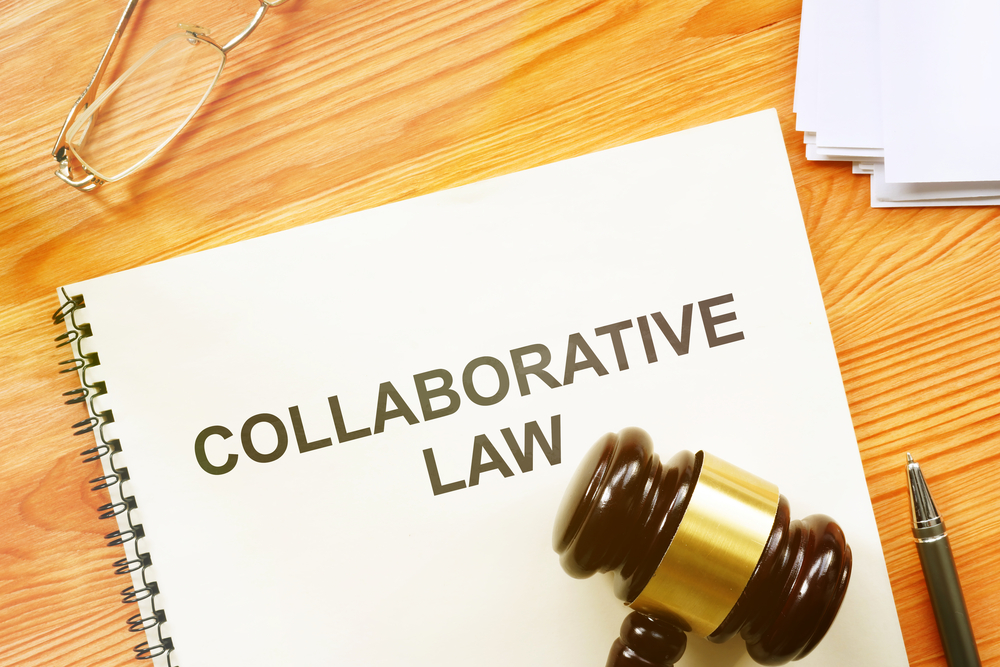Collaborative Divorce Attorneys in New Jersey and Passaic County, across Wayne, Clifton, Little Falls, West Milford, and Woodland Park
If you are considering a separation or divorce, you need to know about an option known as “Collaborative Divorce.” It’s an area of family law that has been growing in popularity in recent years, but couples should be aware of this option’s limitations.
It is often a cheaper and more effective way to divorce for many people, but it can jeopardize property division. And there are some other family law concerns.
What is Collaborative Divorce?
Collaborative law, also known as collaborative practice, divorce, or family law, is a legal process enabling couples who have decided to separate or end their marriage to work with collaboratively trained lawyers, coaches, and financial professionals. This process can help couples avoid the uncertain outcome of court and achieve a settlement that best meets the specific needs of both parties and their children without the threat of litigation in the background. The voluntary process allows parties to have a fair settlement. It’s initiated when the couple signs a contract binding each other to the process and disqualifying their respective lawyer’s right to represent either one in any future family-related litigation.
The Family Collaborative Law Act
The law makes collaborative divorce an officially recognized divorce process in New Jersey, along with the processes known as litigation, mediation, and arbitration. The law also greatly expands confidentiality protections for people who choose the collaborative divorce process.
Collaborative divorce utilizes a team of trained experts, such as attorneys, therapists, financial planners, and child behavioral experts, in an out-of-court setting. As a result, proponents say the process tends to be cheaper and easier than litigation.
The collaborative process is a conscious choice to agree not to proceed through court and to resolve the conflict using a team of collaboratively trained professionals.
What Does a Collaborative Lawyer Do?
A collaborative attorney is a legal attorney who has undergone special training in collaborative divorce to help couples seek a collaborative method to dissolve their marriage. During the collaborative process, the lawyer encourages the couple to avoid adversarial techniques and to complete the divorce with a spirit of cooperation.
Limitations Exist

There are benefits to collaborative divorce, and there are also risks. U.S. News & World Report points out that getting an out-of-court divorce might sound attractive to people who are not necessarily well suited for this process. In addition, maintaining an amicable relationship during a divorce can be extremely difficult, yet, for the collaborative divorce process to succeed, it is an absolute necessity to maintain good communication with an ex-spouse. That these amicable communications might break down is one risk of the collaborative process.
One of the other risks we see is that collaborative divorce can sometimes benefit one spouse over the other. A person who feels bullied by a former spouse or intimidated into accepting an unfair offer is unlikely to benefit from collaborative divorce. Because a judge is not present during a collaborative divorce, a spouse in a weaker position financially or emotionally tends to enjoy fewer protections, which a court would provide, thus exposing him or her to an unfair division of property or a related concern.
Family Law
When it comes to divorce, it is important to make sure it is done right the first time. An experienced family law attorney can help provide the compassion and understanding that people going through a divorce want, along with the ability and dedication to represent a client’s interests in court if necessary.
The Collaborative Process
First, you’ll meet with your attorney; then, you’ll both meet with your spouse and his or her attorney. That will be the first of many four-way meetings. At the first meeting, both parties and their lawyers usually sign a “no court” agreement, which allows both attorneys to withdraw from your case if either spouse exits the collaborative divorce process to start litigating in court. The “no court” agreement is a strong incentive for spouses to negotiate even if it gets difficult. If your lawyer or professional team withdraws from the case, you will need to hire a new team, which will be expensive.
At subsequent meetings, the two teams will meet to revisit each spouse’s wants and needs in the divorce.
Spouses are on the honor system to provide all information for the negotiations, including tax returns, employment and salary information, and assets and debts. This also includes financial instruments such as 401(k)s that you contributed to during the marriage.
There is no “discovery” process, including the use of subpoenas from the court, in the collaborative process. So if you suspect your spouse may hide information, collaborative divorce may not be right for you.
Hiding financial assets in a divorce is not a common occurrence, but it does happen. If a spouse doesn’t disclose assets during the divorce and the former spouse discovers the deception later, the court may reopen your divorce to alter the settlement.
Once the spouses have negotiated the divorce terms, their lawyers draft a settlement agreement for both parties to sign. Be careful not to sign the document unless you agree to each of the divorce terms. If the judgment is fair and reasonable to both spouses, a judge will sign it, and it will become your final judgment of divorce.
Is Collaborative Law the Right Process for You?

Whether a collaborative divorce is right for you depends on each spouse’s opinion on the process, willingness to negotiate, and ability to work together. For example, if you and your spouse have a history of domestic violence or you’re unable to communicate, you’ll likely need to file for a contested divorce, which typically focuses on what each spouse is entitled to by state law.
If you can both discuss the terms of your divorce rationally, you may save time and money using the collaborative process.
Contact our Divorce Lawyers for a Free Consultation
Bear in mind that divorce is messy, and both spouses will probably experience intense feelings during the process of ending a relationship. In collaborative divorce, positive communication needs to continue.
It’s like;y that both spouses will walk away from the process feeling as though they didn’t receive everything they wanted. But a collaborative divorce allows the couple to keep the power to decide how to proceed with the essential divorce issues without third-party intervention (in other words, the judge.)
Consult with the collaborative divorce experts at The Montanari Law Group to learn more about this process in Clifton, Little Falls, West Milford, and Woodland Park. Call us today at (973) 233-4396 for a free initial consultation.

